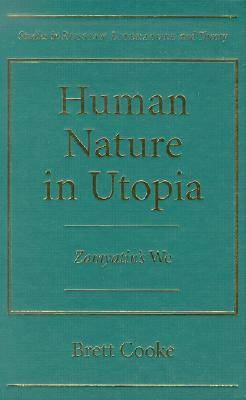Studies in Russian Literature and Theory
1 total work
The first comprehensive study of one of the most important twentieth-century Russian novels, this book is also the first to apply the perspective of biopoetics to a Russian masterwork. As such, Human Nature in Utopia offers a valuable new approach to Evgenii Zamyatin's We while it explores the workings of sociobiology and evolutionary psychology in the conception, reception, and enduring interest of other fictional - especially utopian and dystopian - works. A classic of both Russian literature and science fiction, Zamyatin's 1921 masterpiece depicts a world so "perfected" by social engineering as to be unfit for human habitation. More than a prescient portrayal of the incipient Soviet state (it became the first novel banned in the USSR), We exposes human universals central to social construction in general. Reading the novel as a complex cross-matrix of psychological forces, an engine of narrative force and artistic interest, Brett Cooke identifies a number of the diverse ways in which the text reveals and reaches out to human nature.
His theoretical framework allows him to offer compelling insights into the creation of the novel, its style, content, and genre, and its long-lived fascination for readers. Along the way, Cooke draws numerous comparisons with earlier utopian and dystopian works.
His theoretical framework allows him to offer compelling insights into the creation of the novel, its style, content, and genre, and its long-lived fascination for readers. Along the way, Cooke draws numerous comparisons with earlier utopian and dystopian works.
